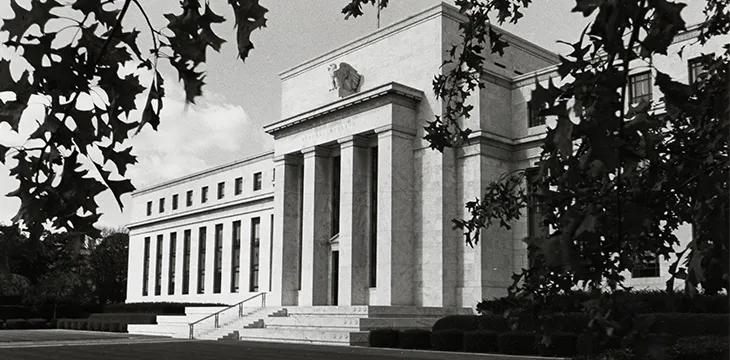|
Getting your Trinity Audio player ready...
|
The U.S. Federal Reserve has realized that cryptocurrency poses a real threat to fiat payments. It hasn’t directly admitted as much, but the fact that it wants to release a payments system to rival SWIFT and allow real-time settlements indicates it has a real concern over crypto’s ability to revolutionize how money transactions are conducted.
The Fed, as it’s called in the U.S., is going to introduce a new system of payments called FedNow, according to a press release by the organization. FedNow is designed to offer interbank real-time payments and will offer “round-the-clock” payments and settlements.
The Fed’s Board of Governors approved the system and states in the press release, “The rapid evolution of technology presents a pivotal opportunity for the Federal Reserve and the payment industry to modernize the nation’s payment system and establish a safe and efficient foundation for the future. The Federal Reserve believes faster payment services, which enable the near-instantaneous transfer of funds day and night, weekend and weekdays, have the potential to become widely used and to yield economic benefits for individuals and businesses by providing them with more flexibility to manage their money and make time-sensitive payments.”
The Fed is a private company backed by the U.S. government. It serves as the country’s central bank and oversees all financial institutions in the country, as well as sets interest and U.S. dollar rates. Board Governor Lael Brainard says of the new system, “Everyone deserves the same ability to make and receive payments immediately and securely, and every bank deserves the same opportunity to offer that service to its community. FedNow will permit banks of every size in every community across the country to provide real-time payments to their customers.”
The SWIFT international payment system has been in operation for 46 years and is currently the largest payments solution for banks across the globe. However, payments sent using the system can sometimes take three weeks or more to clear and allow the funds to be accessed. Given that the solution is cumbersome at best, and the fact that crypto allows for payments to be received in a matter of minutes, the timing of the new system can only be attributable to the success digital currency payments have seen.
The Fed has been receiving input on a new system since last year when it began soliciting public input. Despite the urgency with which an alternative should be developed, the organization isn’t showing a lot of energy to roll out FedNow. It indicates that the system won’t be ready until 2023 or 2024, which, in government years, means most likely 2030. By then, crypto will have further entrenched itself as the primary payment solution.

 07-03-2025
07-03-2025 





